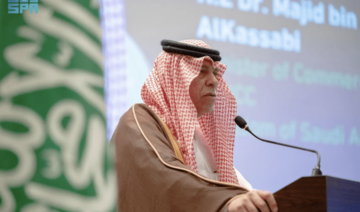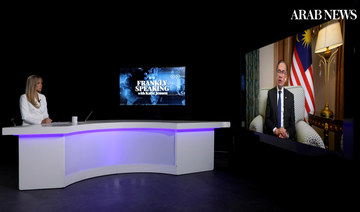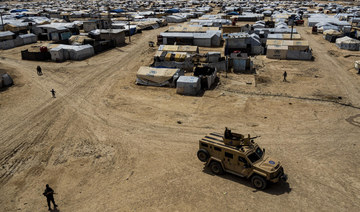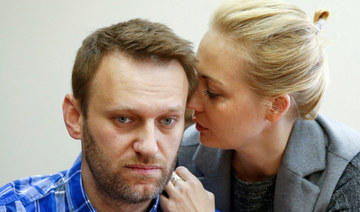ISLAMABAD: On the campaign trail in Pakistan, candidates boast about their readiness to stand up to Washington and often tout their anti-American credentials. One party leader even claims he would shoot down US drones if he comes to power.
So it’s perhaps no surprise that the government that emerges from next month’s parliamentary election is likely to be more nationalistic and protective of Pakistani sovereignty than its predecessor.
As a result, the US may need to work harder to enlist Islamabad’s cooperation, and the new Pakistani government might push for greater limits on unpopular American drone strikes targeting Taleban and Al-Qaeda militants in the country.
But ultimately, the final say on Pakistan’s stance toward drones and many aspects of the relationship with Washington is in the hands of the country’s powerful army. And even nationalist politicians like former Prime Minister Nawaz Sharif, the leading contender in the election, recognize the need for a US alliance and are unlikely to go too far in disturbing it.
“I think the tagline here is different posturing, same substance” when it comes to the next government’s relationship with the US, said Moeed Yusuf, an expert on South Asia at the United States Institute of Peace.
Nevertheless, it’s unclear how long Pakistan’s alliance with the US can remain relatively insulated from anti-American sentiment. The May 11 vote is historic because it will mark the first transfer of power between democratically elected governments in a country that has experienced three military coups.
US officials have remained fairly quiet about the election because they don’t want to be seen as influencing who wins. But Secretary of State John Kerry has met Pakistani army chief Gen. Ashfaq Parvez Kayani twice in the last month, underlining the importance of the relationship to Washington.
The US needs Pakistan’s help in battling militants and negotiating an end to the war in neighboring Afghanistan. Pakistan relies on the US for billions of dollars in aid and also needs American support as it seeks a bailout from the International Monetary Fund to shore up the government’s shaky fiscal situation.
The relationship has been severely strained in recent years, especially following the 2011 raid that killed Osama Bin Laden near Pakistan’s equivalent of West Point. But it has never broken down completely and has settled into a wary calm over the last year or so. Trust is still in short supply, but both sides recognize they can’t do without each other.
“We have moved into a phase of reduced expectations of each other, which is good,” said Maleeha Lodhi, a former Pakistani ambassador to the US “It’s what they call the new normal.”
Sharif has criticized the outgoing Pakistan People’s Party for selling out the country’s sovereignty in exchange for US aid and likes to recount how he tested Pakistan’s first nuclear weapon in 1998 despite American pressure.
“We will never accept any foreign pressure,” said Sharif, head of the Pakistan Muslim League-N party, during a recent campaign speech. “We will have relations with foreign countries on the basis of mutual respect, dignity and equality.” Sharif’s party controlled the government of Pakistan’s largest province, Punjab, in 2011 when it turned down more than $ 100 million in US aid following the raid that killed Bin Laden. But Lodhi, the former ambassador, said she thought it was unlikely Sharif would give up the more than $ 1 billion in American aid Pakistan receives annually if he came to power.
Imran Khan, who many analysts believe will end up playing a key role in the opposition after the election, has been even more critical of Pakistan’s relationship with the US, saying he would “end the system of American slavery.” But the manifesto of Khan’s party, Pakistan Tehreek-e-Insaf, is more tempered, saying “Pakistan will endeavor to have a constructive relationship with the US based on Pakistan’s sovereign national interests and international law, not on aid dependency.” Pakistan’s relationship with the US — and foreign policy in general — has been less of a focus in the election than domestic issues, such as corruption, pervasive energy shortages and stuttering economic growth.
Lodhi believes this is because the US has said it is largely pulling out of Afghanistan by the end of 2014 and is seeking a peace settlement with the Taleban — a move long advocated by the Pakistani government and supported by the main contenders in the election.
“That has helped to take the edge off negative sentiment in Pakistan which we saw in the last couple of years against the United States,” Lodhi said.
One issue that continues to create tension between the two countries is the US drone program targeting militants in Pakistan’s rugged tribal region near the Afghan border.
The attacks are extremely unpopular in Pakistan. They are seen as violating the country’s sovereignty, and many people believe they kill mostly civilians — an allegation denied by the US Pakistan’s civilian and military leaders have contributed to these perceptions by criticizing the strikes in public in the past, while supporting them in secret. This support has declined over time as the relationship between the two countries has worsened.
The number of strikes has dropped from a peak of more than 120 in 2010 to close to a dozen so far this year, but it’s unclear how much this trend has been driven by US decisions about targeting versus the political sensitivity of carrying out strikes.
Khan, the former cricketer, has sharply criticized US drone attacks and has even pledged to shoot down the unmanned aircraft if he came to power.
Sharif has also been a vocal opponent of the strikes in the past, although he hasn’t made them as much of a focal point of his campaign as Khan has.
Nevertheless, Daniel Markey, a South Asia expert at the Council on Foreign Relations, believes Sharif would work with the army to renegotiate the use of drones in Pakistan if he took power.
“In the end, I think probably some accord will be reached in which the use of drones will probably be curtailed from where they have been over the past couple of years,” Markey said during a recent call with media. “But they will continue, particularly against high-value targets when they are found.” However, Lodhi, the former ambassador, has doubts Sharif would pick a high-profile fight with the US over drones since the number of strikes has decreased so much.
“The centrality of drones may not be what it was in the past,” Lodhi said. “Why would you want to whip up something that is going down anyway?”
Pak-US alliance takes hits on campaign trail
Pak-US alliance takes hits on campaign trail
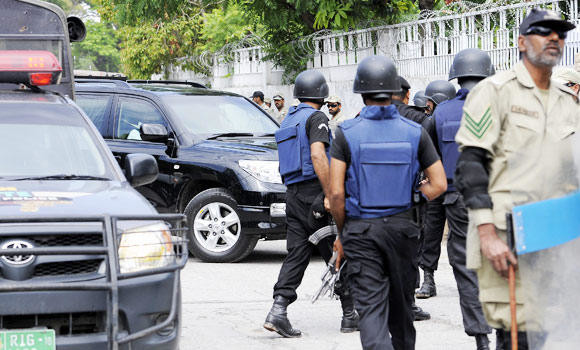
Key debt ratio resumes rise as global debt burden hits record $315 trillion, IIF says
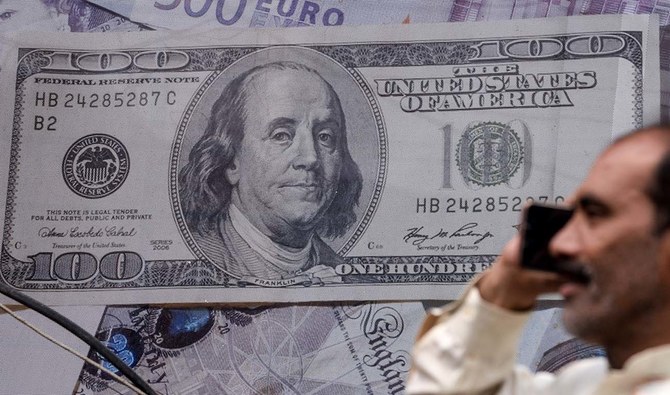
- The turnaround comes as dollar value of global debt surged by some $1.3 trillion quarter-on-quarter
- Pakistan is set to spend above 50 percent of its revenue on interest and Egypt more than 60 percent
NEW YORK: A key measure of world indebtedness has resumed its climb as global debt hit a record high of $315 trillion in the first quarter of the year, fueled by borrowing in emerging markets, the United States and Japan, a study showed.
The global debt-to-output ratio — a measure describing the ability of a borrower to pay back debt — rose to hit 333 percent after three consecutive quarters of decline, the Institute of International Finance (IIF) said on Tuesday in its quarterly Global Debt Monitor report.
The turnaround comes as the dollar value of global debt surged by some $1.3 trillion quarter-on-quarter.
Debt in emerging markets grew to a record of more than $105 trillion — having more than doubled over the past decade according to IIF data.
The largest contributors to the increase among emerging economies were China, India and Mexico. South Korea, Thailand, and Brazil posted the largest dollar value declines in overall debt among the subgroup, the data showed.
“Government budget deficits are still higher than pre- pandemic levels and are projected to contribute around $5.3 trillion to global debt accumulation this year,” the IIF said in a statement. “Rising trade friction and geopolitical tensions also present significant potential headwinds for debt markets.”
Interest rates were expected to have started declining in the United States by now but sticky inflation has seen the Federal Reserve stand its ground.
This has meant higher borrowing costs across the globe and, for many emerging markets, weakened currencies that further exacerbate the cost of servicing debt and “could once again bring government debt strains to the fore,” the IIF said.
Egypt and Pakistan are seen as the emerging economies where the interest expense on government debt will be highest through 2026, with Pakistan set to spend above 50 percent of revenue on interest and Egypt more than 60 percent.
Among developed economies, the United States and Japan saw debt rise the quickest, adding 17 percentage points and 4 percentage points respectively.
Japan is expected to continue to spend on average under 2 percent of government revenue in debt servicing through 2026, according to the IIF. In the US, the figure is expected to rise above 10 percent from the current 8 percent and brush against 12 percent in the same period.
Last month, the International Monetary Fund warned the US level of spending is “of particular concern” and “out of line with long-term fiscal sustainability.”
UK prime minister summons university leaders over pro-Palestinian protests
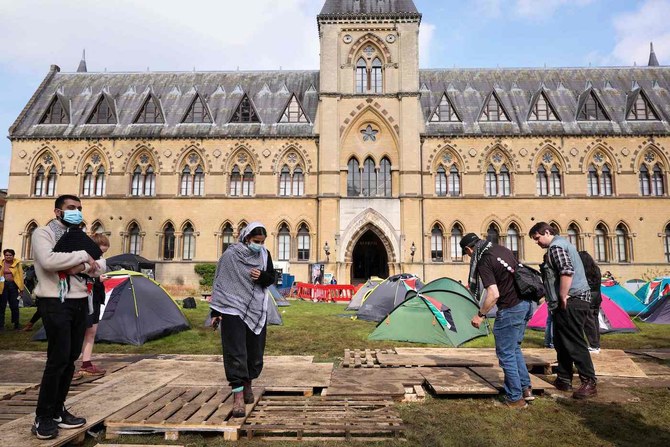
- Meeting to discuss antisemitism, ensuring Jewish students are safe
LONDON: UK Prime Minister Rishi Sunak is to summon the leaders of universities following pro-Palestinian protests that have taken place at campuses across the country.
The meeting will take place this week to discuss antisemitism on campuses and ensuring Jewish students are safe, Sunak told Britain’s Cabinet on Tuesday.
A spokesman for the prime minister said Sunak expected university leaders to take “robust action” in dealing with the protests, The Evening Standard reported.
“Our university campuses should be places of rigorous debate, but they should also be tolerant places where people of all communities, particularly Jewish students at this time, are treated with respect,” the spokesman said.
The “right to free speech does not include the right to harass people or incite violence,” he added.
The summons comes after British students set up pro-Palestinian protest encampments at Oxford and Cambridge campuses on Monday, in a show of solidarity with their American peers.
Cambridge University said its priority was the “safety of all staff and students” and that it was committed to freedom of speech.
“We will not tolerate antisemitism, Islamophobia and any other form of racial or religious hatred, or other unlawful activity,” a spokesperson said.
Pro-Palestinian protests have been taking place at US universities since April 17 and the protests have spread to Europe.
Police broke up student demonstrations in the Netherlands, Germany, and France on Tuesday as Israeli forces seized the main border crossing between Egypt and southern Gaza.
2,000 religious leaders attend Muslim World League conference in Kuala Lumpur
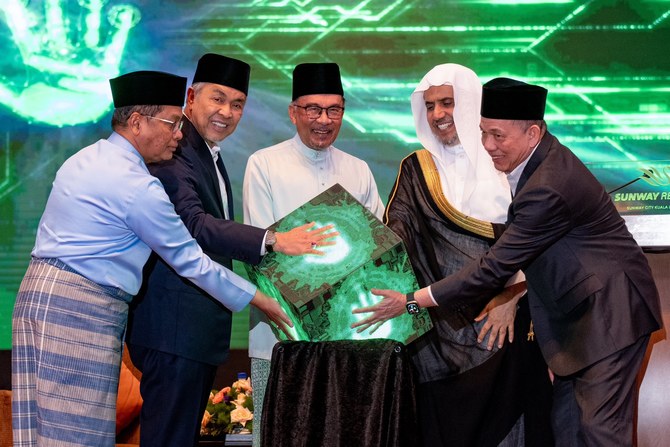
- MWL co-organized international gathering with the Malaysian government
- Prime Minister Anwar Ibrahim delivers speech during the conference
KUALA LUMPUR: More than 2,000 religious leaders and scholars from 57 countries gathered in Kuala Lumpur on Tuesday for a conference organized by the Muslim World League to discuss the role of religion in facilitating dialogue and peace initiatives.
The MWL, an international non-governmental Islamic organization founded in Saudi Arabia in 1962, organized the 2024 International Conference of Religious Leaders with Malaysia’s Department of Islamic Development.
The conference was inaugurated by Malaysian Prime Minister Anwar Ibrahim and MWL Secretary-General Sheikh Dr. Mohammad bin Abdulkarim Al-Issa.
“This religious conference will be an annual feature in Malaysia since it has proved successful in building an understanding and affinity among religions in the world, as well as in Malaysia,” Anwar said during his speech.
“In a conference like this, we can observe the things that need to be done and need to be improved among Muslims, Christians, Buddhists or Hindus. We want to listen to your advice, criticisms and suggestions.”
While about two-thirds of Malaysia’s more than 33 million population are Muslims, there are also large Buddhist, Hindu, and Christian minorities in the country.
“Religious leaders should take an active, effective and courageous role in promoting peace and justice. It is the duty of religious leaders to ensure that governance is guided by strong moral and ethical values,” Anwar said.
Al-Issa said the conference seeks to have a tangible impact.
“This international conference was attended by international, religious, political, intellectual, academic and media leaders. It is considered the first nucleus of a major breakthrough through a number of initiatives and programs around the world, aiming to enhance friendship and cooperation between nations and peoples,” he said.
“Our world is most in need of true solidarity, solidarity with a tangible impact, and is most in need of awareness of the threats threatening its global peace and the harmony of its diverse national communities in their religions and races.”
US repatriates two dozen Westerners from Syria Daesh camp
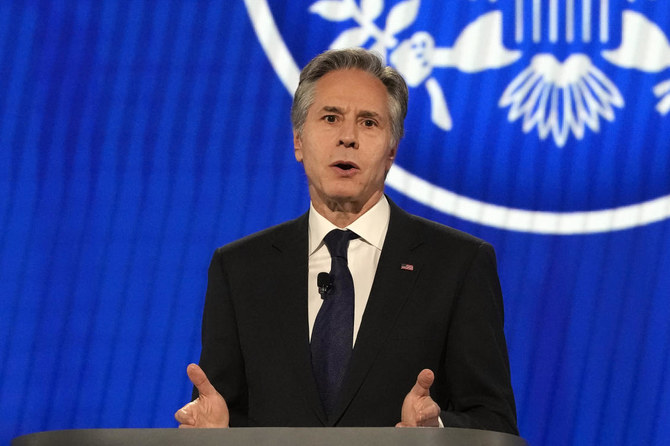
- In a complex operation involving US agencies, Kuwait and pro-US Kurdish fighters, the United States repatriated 11 US citizens
- The US also facilitated the repatriation of six Canadian citizens, four Dutch citizens, and one Finnish citizen
WASHINGTON: The United States announced Tuesday it had brought back two dozen Western citizens, half of them Americans, from a camp for Daesh prisoners in Syria, its largest-ever repatriation as thousands languish.
In a complex operation involving US agencies, Kuwait and pro-US Kurdish fighters, the United States repatriated 11 US citizens, including five minors, as well as a nine-year-old non-US sibling of an American, Secretary of State Antony Blinken said.
The United States in the same operation facilitated the repatriation of six Canadian citizens, four Dutch citizens, and one Finnish citizen, among them eight children, he said.
“This is the largest single repatriation of US citizens from northeast Syria to date,” Blinken said in a statement.
“The only durable solution to the humanitarian and security crisis in the displaced persons camps and detention facilities in northeast Syria is for countries to repatriate, rehabilitate, reintegrate and, where appropriate, ensure accountability for wrongdoing,” he said.
The United States has long pushed European governments to bring back nationals who went to fight for the Daesh group — or their children.
Most European countries have done so but slowly and despite initial reservations, especially in countries with a history of jihadist attacks at home such as France and Britain.
Blinken did not identify the people who were repatriated.
The New York Times, quoting unidentified sources, said they included an American woman, whose Turkish husband apparently took the family to Daesh territory and was later killed, and their nine children.
The Star Tribune of Minneapolis reported last week that a man who joined Daesh but then became a valuable informant was seeking the repatriation of two sons, one apparently the non-US citizen, to be raised by their grandparents in Minnesota.
The repatriations remain controversial in the United States as well, with the administration of former president Donald Trump in one prominent case insisting that a young woman seeking to return was not legitimately a US citizen.
The Kurdish-led Syrian Democratic Forces (SDF) helped US forces crush the Daesh group.
Five years after the extremists were ousted from their last territory, the SDF still holds more than 56,000 detainees with alleged or perceived links to the Daesh group.
Kurdish authorities have been asking foreign governments to repatriate their nationals but Western governments have responded slowly for fear of domestic backlash.
Putin starts new six-year term with challenge to the West
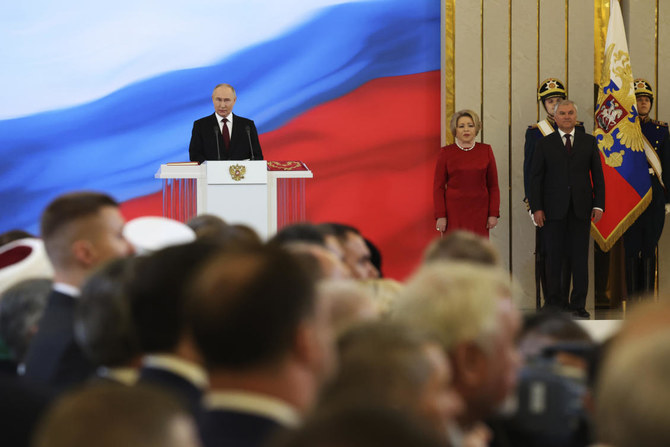
- Putin is sworn in for fifth term
- US and many EU states stay away
- Putin says he’s not ending dialogue with West
MOSCOW: Russian President Vladimir Putin said it was up the West to choose between confrontation and cooperation as he was sworn in for a new six-year term on Tuesday at a Kremlin ceremony that was boycotted by the United States and many of its allies.
More than two years into the war in Ukraine, Putin said he wanted to “bow” before Russia’s soldiers there and declared in his inauguration speech that his landslide re-election in March was proof the country was united and on the right track.
“You, citizens of Russia, have confirmed the correctness of the country’s course. This is of great importance right now, when we are faced with serious challenges,” he told dignitaries in a gilded Kremlin hall where a trumpet fanfare sounded to greet his arrival.
“I see in this a deep understanding of our common historical goals, a determination to adamantly defend our choice, our values, freedom and the national interests of Russia.”
At 71, Putin dominates the domestic political landscape. Leading opposition figures are in prison or exile, and his best known critic, Alexei Navalny, died suddenly in an Arctic penal colony in February.
Yulia Navalnaya, the late dissident’s wife, urged supporters in a video on Tuesday to keep up the struggle against Putin. “With each of his terms, everything only gets worse, and its’ frightening to imagine what else will happen while Putin remains in power,” she said.
On the international stage, Putin is locked in a confrontation with Western countries he accuses of using Ukraine as a vehicle to try to defeat and dismember Russia.
Putin told Russia’s political elite after being sworn in that he was not rejecting dialogue with the West, including on nuclear weapons.
“The choice is theirs: do they intend to continue trying to restrain the development of Russia, continue the policy of aggression, incessant pressure on our country for years, or look for a path to cooperation and peace?” he said.
With Russia’s troops advancing gradually in eastern Ukraine, the top US intelligence official said last week that Putin appeared to see domestic and international developments trending in his favor and the conflict was unlikely to end anytime soon.
It remains unclear how far Putin will seek to press the war and on what terms he might discuss ending it — decisions that will depend in part on whether Joe Biden or Donald Trump wins the US presidential election in November. Ukraine says peace can only come with a full withdrawal of Russia’s troops, who control nearly 20 percent of its territory.
Western absentees
Putin, in power as president or prime minister since 1999, will surpass Soviet leader Josef Stalin and become Russia’s longest-serving ruler since 18th century Empress Catherine the Great if he completes a new six-year term. He would then be eligible to seek re-election again.
He won victory by a record margin in a tightly controlled election from which two anti-war candidates were barred on technical grounds. The opposition called it a sham.
The United States, which said it did not consider his re-election free and fair, stayed away from Tuesday’s ceremony.
Britain, Canada and most EU nations also decided to boycott the swearing-in, but France said it would send its ambassador.
Ukraine said the event sought to create “the illusion of legality for the nearly lifelong stay in power of a person who has turned the Russian Federation into an aggressor state and the ruling regime into a dictatorship.”
Sergei Chemezov, a Putin ally, told Reuters before the ceremony, that Putin brought stability, something which even his critics should welcome.
“For Russia, this is the continuation of our path, this is stability – you can ask any citizen on the street,” he said.
Nuclear tensions
Russia’s relations with the United States and its allies are at their lowest point since the Cuban Missile Crisis of 1962, when the world came to the brink of nuclear war.
The West has provided Ukraine with artillery, tanks and long-range missiles, but NATO troops have not joined the conflict directly, something that both Putin and Biden have warned could lead to World War Three.
Underscoring the rise in nuclear tensions, Russia said on Monday it would practice the deployment of tactical nuclear weapons as part of a military exercise, after what it said were threats from France, Britain and the United States.
One of the decisions awaiting Putin in his new term will be whether to seek to renew or replace the last remaining treaty that limits Russian and US strategic nuclear warheads. The New START agreement is due to expire in 2026.
In line with the constitution, the government resigned at the start of the new presidential term. Putin ordered it to remain in office while he appoints a new one which is expected to include many of the same faces.




